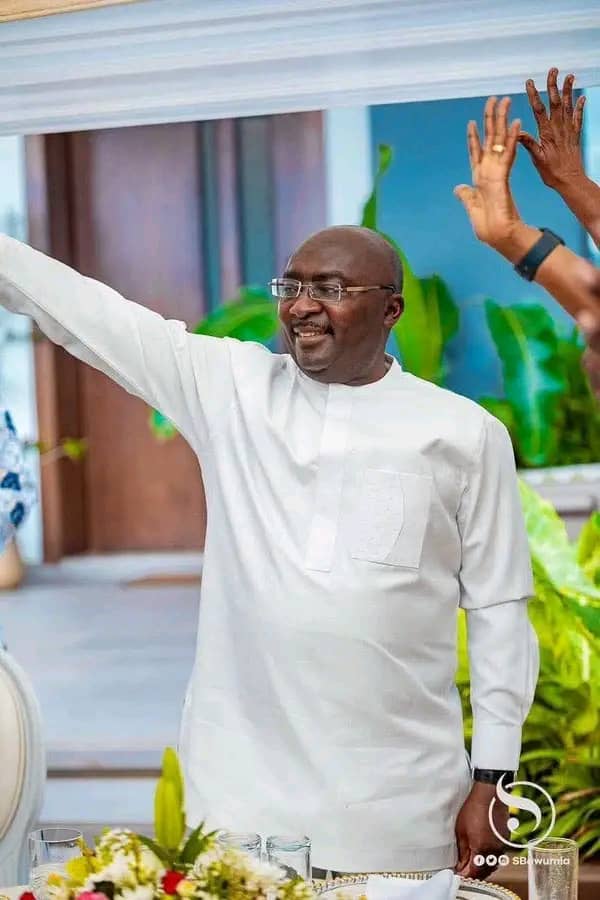By Kwadwo Nyamekye
In the wake of the New Patriotic Party’s (NPP) post-election soul-searching, it is becoming increasingly clear that the recent cracks within the party are not merely episodic but deeply systemic. The conduct and posture of some high-ranking party officials during the last general elections have revealed a troubling undercurrent: individuals occupying sensitive positions within the party hierarchy, who ought to have championed the campaign of the party’s presidential candidate, Dr. Mahamudu Bawumia, were instead undermining his efforts.
This development brings into sharp focus the disjoint between internal democracy and strategic unity. If the purpose of internal democratic contests is not to align the party machinery around its presidential candidate, one must question the point of such contests in the first place.
To this end, it is imperative that the NPP re-examines the sequencing of its internal elections. The suggestion that the party first elects its Flagbearer before other executives—at constituency, regional, and national levels—is not just pragmatic but necessary. The idea is not novel; it has been publicly advocated by party stalwarts such as Kwabena Agyepong, who, despite declaring his intention to contest the flagbearership, has still acknowledged the structural flaw in the current order.
The comparison is simple yet instructive: just as a president appoints ministers after election, a Flagbearer should have the latitude to work with executives who share his vision. Anything short of this opens the door to divided loyalties, factionalism, and ultimately, electoral defeat.
This argument is not rooted in blind loyalty to the #ItIsPossible movement. Rather, it is grounded in an objective assessment of the party’s internal resolution dynamics. While democracy remains a core pillar of party politics, it cannot be treated as a one-size-fits-all framework. Contextual flexibility and strategic prioritization must guide internal reforms.
The NPP cannot afford to be embroiled in internal squabbles at a time when national focus must be on holding the current administration accountable. Between 2026 and 2027, the country will begin scrutinizing the performance of the current government more critically. That is the moment for the NPP to present a unified front—not a fragmented house struggling to heal self-inflicted wounds.
Financially too, the current internal election structure is unsustainable. Aspiring presidential candidates often bear the burden of financing multiple layers of internal elections—from polling stations to national executives—before they even begin campaigning for the general elections. By electing the Flagbearer first, unnecessary expenditures and factional battles could be minimized.
Moreover, this reordering could significantly reduce opportunistic politicking, where some individuals exploit their support for presidential aspirants merely to secure their own parliamentary ambitions. Many such actors abandon party interest the moment their preferred candidate loses.
Even a look across the aisle reveals that the National Democratic Congress (NDC) has benefited from a more tightly controlled internal democracy. Since 2008, no NDC flagbearer has won less than 85% of primary votes. Call it “democratic autocracy” if you will—but it works. Their recent veneration of Dr. Kwame Nkrumah is not misplaced, given his own unique model of democracy.
Would it be politically wise for a Flagbearer to entrust campaign strategy to a regional chairman who was funded by a rival aspirant? The answer is obvious. The disconnect between party and parliamentary candidates in recent elections has been stark, especially in constituencies where executives were perceived to have conflicting allegiances.
Anyone who has critically assessed why the NPP lost several stronghold seats in 2024 would admit that unresolved tensions from constituency-level elections played a significant role. If parliamentary candidates had greater influence in selecting constituency executives, these divisions could have been avoided.
Resistance to change is human. But one of the defining traits of living organisms is their ability to adapt. If the grassroots polling station executives—the very foundation of the party’s electoral college—can elect the Flagbearer, then why wouldn’t their choice for constituency chairman reflect that same will?
Even after his 2016 loss as a sitting president, the NDC rallied around John Mahama in a way that the NPP has struggled to do for Bawumia. Yet, the NDC has the audacity to preach internal democracy?
It’s time the NPP prioritized strategic unity over procedural orthodoxy. If winning the 2028 elections is the goal, then internal restructuring is not optional—it is urgent.


